10 Ways AI is Transforming the Healthcare Industry

In today’s fast-paced world, artificial intelligence (AI) is not just a buzzword; it’s a game changer, especially in the healthcare industry. Imagine walking into a clinic where your medical history is instantly available, your treatment plan is personalized, and your doctor has the most accurate diagnostic tools at their disposal. Sounds futuristic, right? Well, that future is now! AI is revolutionizing how we approach healthcare, enhancing patient care, streamlining processes, and ultimately improving outcomes. Let’s dive into some of the most exciting ways AI is making waves in this field.
One of the most significant advancements AI brings to healthcare is its ability to enhance diagnostics. AI algorithms are designed to analyze medical images and patient data with incredible precision. This means that diseases can be detected earlier than ever before, leading to timely interventions and better treatment plans. For instance, AI can identify patterns in radiology images that even the most experienced doctors might miss. As a result, patients receive accurate diagnoses, which can be the difference between life and death in critical situations.
When it comes to treatment, one size does not fit all. This is where AI shines by enabling personalized medicine. By analyzing individual patient data, including genetics and lifestyle choices, AI helps healthcare providers create tailored treatment plans. Imagine a world where your medication is specifically designed for your unique genetic makeup! This level of customization not only enhances the effectiveness of therapies but also minimizes adverse effects, making healthcare more efficient and patient-centered.
What if you could predict health issues before they even arise? With AI’s predictive analytics, this is becoming a reality. By sifting through vast amounts of health data, AI can forecast potential health risks and patient outcomes. This proactive approach allows healthcare providers to intervene early, potentially saving lives and reducing healthcare costs. For example, AI can analyze your medical history and lifestyle factors to predict your risk of developing chronic conditions, empowering you to make informed health decisions.
Ever wished you had a personal assistant to help manage your health? Enter AI-powered virtual health assistants. These chatbots are available 24/7, providing patients with instant access to information, appointment scheduling, and medication reminders. Not only do they enhance patient engagement, but they also free up healthcare professionals to focus on what they do best: caring for patients. Imagine being able to ask a chatbot about your symptoms and receiving accurate information instantly!
The traditional drug discovery process is often lengthy and costly. However, AI is revolutionizing this field by analyzing biological data and predicting drug interactions. This significantly accelerates the identification of potential candidates for clinical trials. As a result, new medications can reach the market faster, benefiting patients who need them. In fact, AI has been shown to reduce the time taken for drug discovery by up to 50%, which is a remarkable feat in the healthcare industry.
| AI Impact on Drug Discovery | Traditional Method | AI-Driven Method |
|---|---|---|
| Time to Market | 10-15 years | 5-7 years |
| Cost | $2.6 billion | $1.2 billion |
| Success Rate | 10% | 30% |
As we can see from the table above, the impact of AI on drug discovery is profound. It not only reduces costs but also increases the success rate of new drugs entering the market.
In conclusion, the integration of AI in the healthcare industry is paving the way for a brighter future. From enhanced diagnostics to personalized medicine, the benefits are numerous and transformative. As we continue to explore the potential of AI, it’s essential to keep ethical considerations in mind, ensuring that patient data is handled with care and that these technologies are accessible to all.
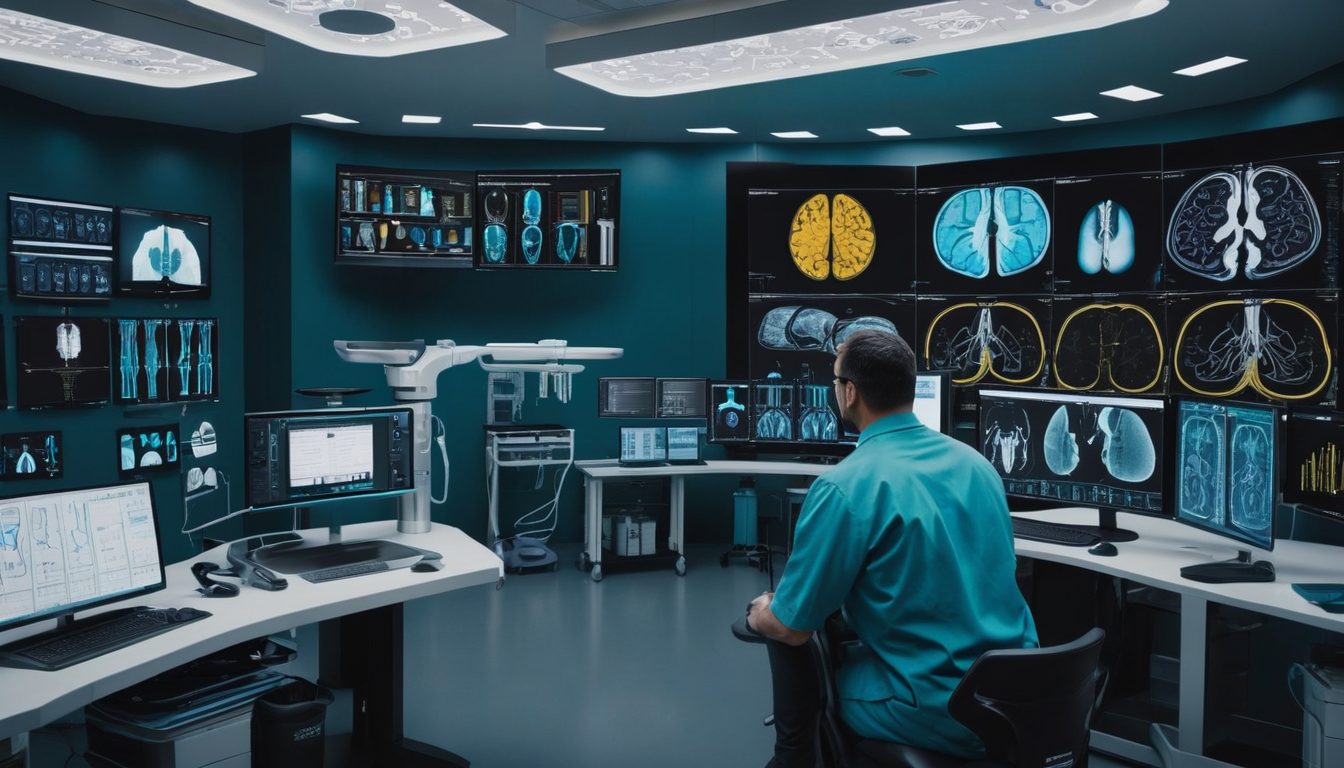
1. Enhanced Diagnostics
In the ever-evolving landscape of healthcare, enhanced diagnostics powered by artificial intelligence (AI) is a game-changer. Imagine a world where diseases are detected at their earliest stages, leading to better treatment outcomes. AI algorithms are now capable of analyzing medical images, such as X-rays, MRIs, and CT scans, with remarkable accuracy. This not only speeds up the diagnostic process but also minimizes human error, which can often lead to misdiagnosis.
For instance, AI systems can examine thousands of images in mere seconds, identifying patterns that the human eye might miss. According to a study published in the journal Nature, AI achieved an accuracy rate of over 90% in detecting certain types of cancers from medical images, significantly outperforming traditional methods.
| Diagnostic Method | Traditional Accuracy | AI Accuracy |
|---|---|---|
| X-ray Analysis | 80% | 95% |
| CT Scan Interpretation | 85% | 92% |
| MRI Detection | 78% | 90% |
Moreover, the integration of AI in diagnostics goes beyond just imaging. It also includes the analysis of patient data, lab results, and even genetic information. AI can sift through vast amounts of data to identify risk factors and predict potential health issues. For example, if a patient has a family history of heart disease, AI can flag this information and recommend further tests, allowing for early intervention.
As we embrace this technological revolution, it’s essential to recognize the role of AI in enhancing diagnostics. It’s not just about faster results; it’s about better outcomes and improved patient safety. The future of healthcare is bright, and AI is leading the way in transforming how we detect and treat diseases.
To summarize the benefits of AI in diagnostics:
- Improved Accuracy: Higher detection rates for diseases.
- Speed: Quicker analysis of medical images and data.
- Data Integration: Comprehensive analysis of patient history and lab results.
- Early Detection: Identifying diseases before symptoms appear.
As we look forward, the collaboration between healthcare professionals and AI technology will continue to evolve, ensuring that patients receive the best possible care. With enhanced diagnostics, we are not just treating illnesses; we are paving the way for a healthier future.
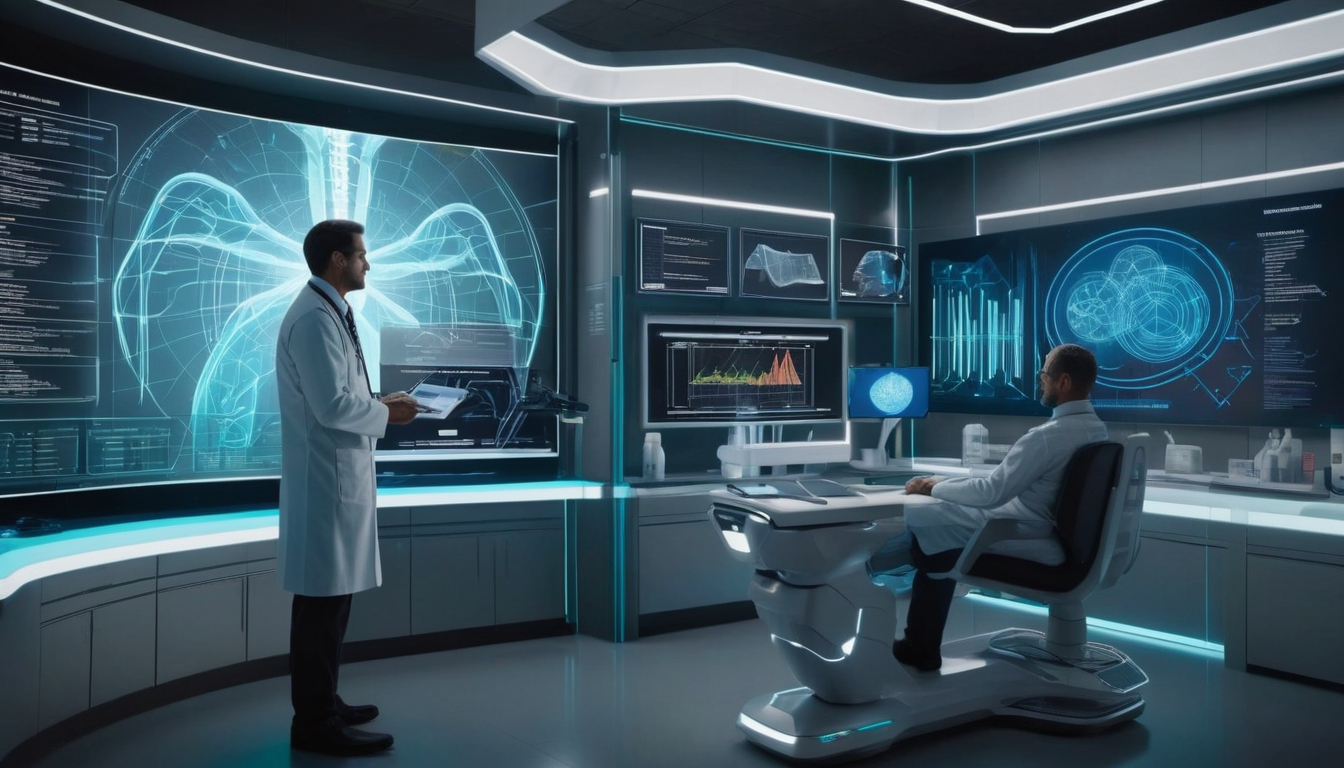
2. Personalized Medicine
The concept of personalized medicine is revolutionizing the way we approach healthcare. Imagine a world where your treatment plan is as unique as your DNA. Well, thanks to advancements in artificial intelligence (AI), this dream is becoming a reality. AI analyzes individual patient data, including genetics, lifestyle choices, and environmental factors, to tailor treatment plans that are specifically designed for you. This bespoke approach not only enhances the effectiveness of therapies but also minimizes potential side effects, making your healthcare experience more efficient and targeted.
One of the most exciting aspects of personalized medicine is its ability to predict how a patient will respond to certain treatments. For instance, AI algorithms can process vast amounts of data from previous patients to identify patterns and outcomes. This predictive capability allows healthcare providers to choose the right medication or therapy for you, significantly improving chances of success. According to a recent study, patients receiving personalized treatment plans have shown a 30% improvement in their health outcomes compared to those on standard treatments.
Below is a table that illustrates the key differences between traditional treatment approaches and personalized medicine:
| Aspect | Traditional Medicine | Personalized Medicine |
|---|---|---|
| Treatment Approach | One-size-fits-all | Tailored to individual needs |
| Data Utilization | Limited patient data | Extensive patient data analysis |
| Outcome Prediction | Standard outcomes | Predictive analytics for better outcomes |
| Side Effects | Higher potential | Minimized through tailored treatments |
The rise of AI in personalized medicine is also making waves in the realm of oncology. For example, cancer treatments can now be customized based on the genetic profile of a tumor, leading to more effective interventions. Imagine a doctor being able to say, “This treatment will work best for you because your tumor has this specific mutation.” It’s like having a GPS for your health journey, guiding you toward the most effective treatment path.
However, with great power comes great responsibility. As we embrace personalized medicine, we must also navigate the ethical landscape it presents. Questions regarding data privacy, informed consent, and the potential for bias in AI algorithms are critical. It’s essential for healthcare providers and technologists to work together to ensure that personalized medicine remains a safe and equitable option for all patients.
In conclusion, personalized medicine, powered by AI, is not just a trend; it’s the future of healthcare. As we continue to harness the potential of technology, we can look forward to a healthcare system that not only treats diseases but also understands and respects the uniqueness of every individual. Are you ready to embrace this new era of healthcare?
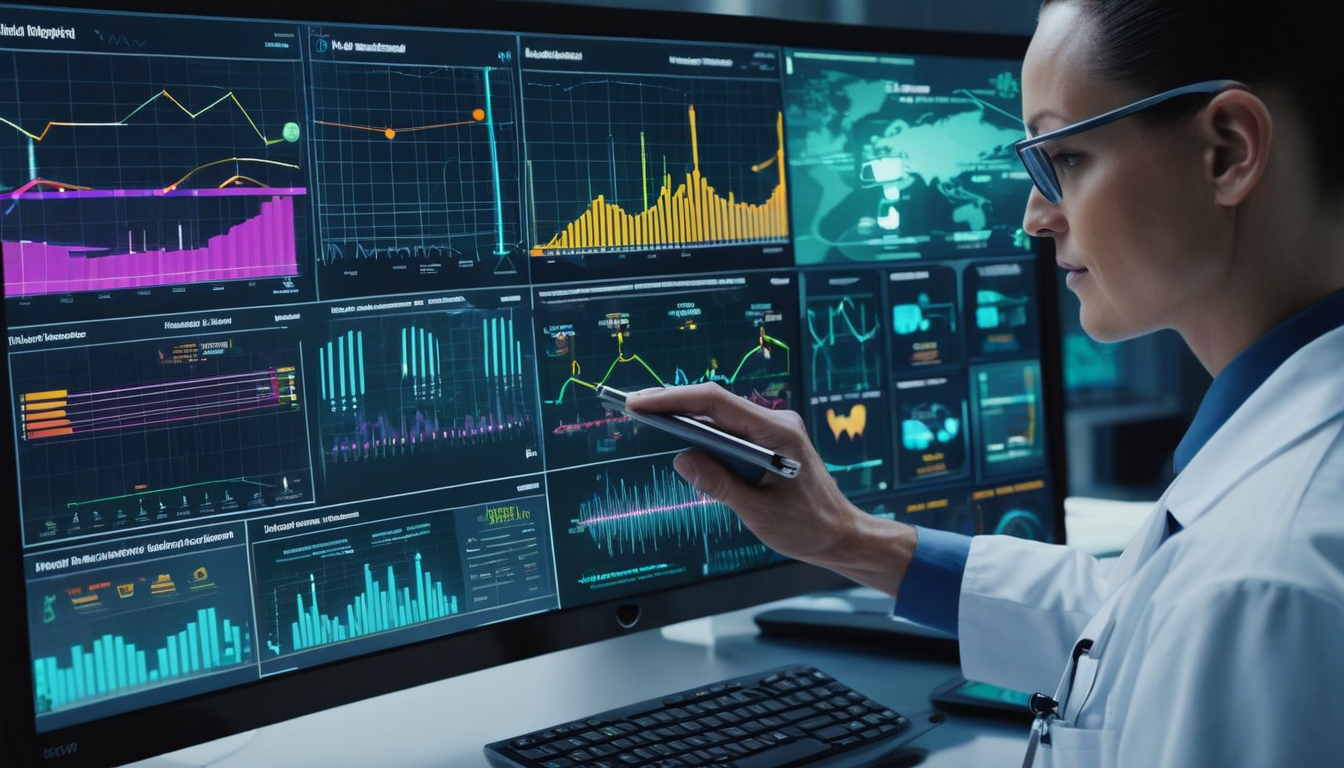
3. Predictive Analytics
Predictive analytics is rapidly becoming a game-changer in the healthcare industry, utilizing AI technologies to forecast patient outcomes and identify potential health risks. Imagine having a crystal ball that not only tells you what might happen to your health but also guides you on how to prevent it! This is precisely what predictive analytics offers. By analyzing vast amounts of patient data, including medical history, lifestyle choices, and even environmental factors, healthcare providers can make informed decisions that significantly enhance patient care.
One of the most impressive aspects of predictive analytics is its ability to identify patterns that would be nearly impossible for humans to detect. For instance, algorithms can sift through thousands of records to find correlations between symptoms and diseases, leading to earlier interventions. This proactive approach can be crucial in managing chronic conditions like diabetes or heart disease, where timely action can mean the difference between life and death.
To illustrate the impact of predictive analytics, let’s consider a scenario where a hospital implements an AI-driven analytics system. The system analyzes data from various sources, such as electronic health records, lab results, and even social media activity. The outcomes might include:
| Outcome | Benefit |
|---|---|
| Early Detection of Diseases | Improved treatment efficacy and patient survival rates. |
| Reduced Readmission Rates | Lower healthcare costs and better resource allocation. |
| Personalized Treatment Plans | Increased patient satisfaction and adherence to treatment. |
Moreover, predictive analytics can be a powerful tool in managing hospital resources. By forecasting patient admissions and potential surges in demand, healthcare facilities can optimize staffing levels and ensure that the right resources are available when needed. This not only enhances operational efficiency but also improves the overall patient experience.
However, as we embrace these advancements, it’s essential to address the ethical implications surrounding data privacy and security. With sensitive health information at stake, healthcare providers must implement robust measures to protect patient data. As the saying goes, “With great power comes great responsibility.” The responsibility lies in ensuring that predictive analytics serves to enhance patient care without compromising individual privacy.
In conclusion, predictive analytics is revolutionizing the healthcare sector by offering insights that lead to improved patient outcomes and operational efficiency. As technology continues to evolve, the potential for predictive analytics to transform healthcare is limitless. So, the next time you hear about AI in healthcare, remember that it’s not just about robots and algorithms; it’s about making healthcare smarter, safer, and more personalized for everyone.
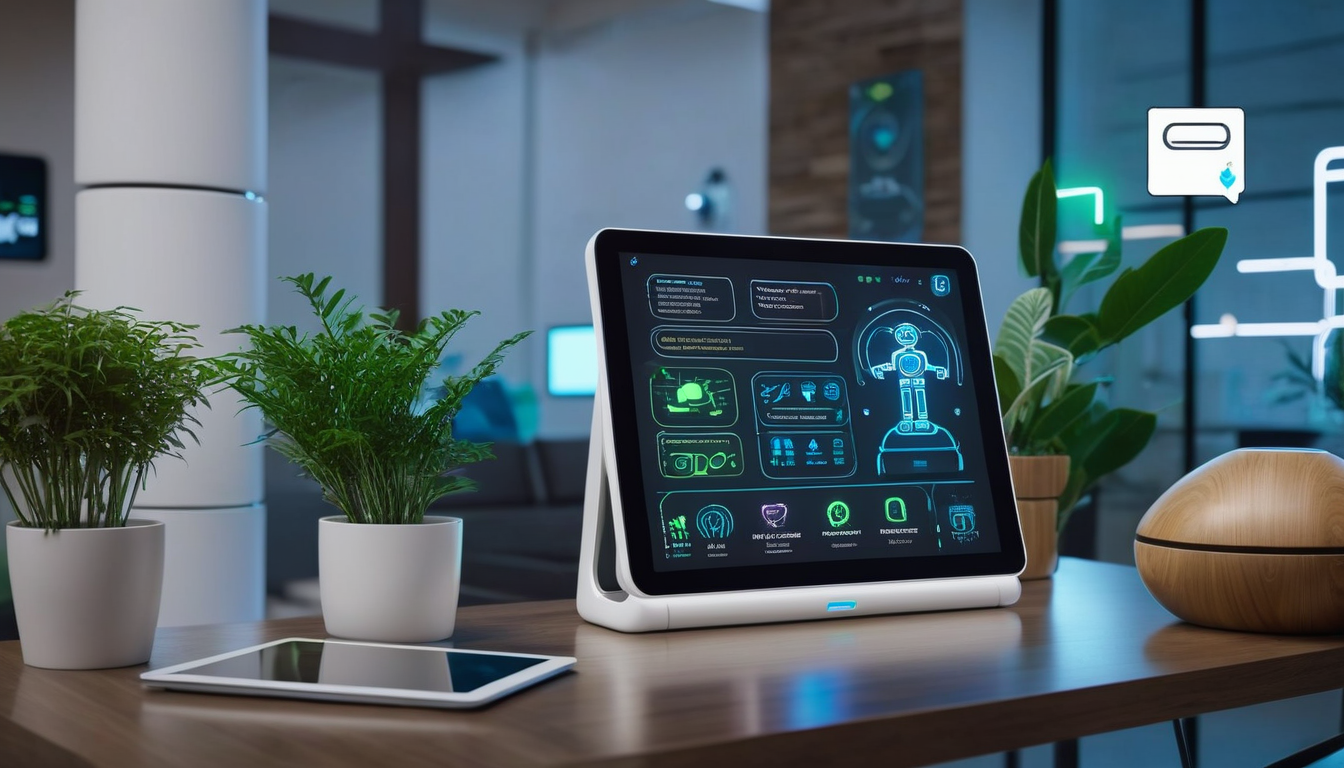
4. Virtual Health Assistants
In the ever-evolving landscape of healthcare, virtual health assistants are emerging as game changers. Imagine having a personal assistant who is available 24/7, ready to answer your health-related questions, remind you to take your medications, and help you schedule appointments—all from the comfort of your home. This is not just a futuristic dream; it’s the reality that AI-powered chatbots and virtual assistants are creating today. By leveraging advanced algorithms and machine learning, these assistants can provide patients with instant access to vital information, enhancing engagement and satisfaction.
One of the most significant benefits of virtual health assistants is their ability to handle a multitude of tasks simultaneously. Whether it’s answering frequently asked questions or providing personalized health tips, these AI-driven tools can significantly reduce the burden on healthcare professionals. For instance, they can manage routine inquiries, allowing doctors and nurses to focus on more complex patient care. This leads to improved efficiency in healthcare settings, ultimately benefiting everyone involved.
Here’s a quick overview of the functionalities offered by virtual health assistants:
| Functionality | Description |
|---|---|
| Appointment Scheduling | Helps patients book, reschedule, or cancel appointments with ease. |
| Medication Reminders | Sends reminders to patients about their medication schedules, ensuring adherence. |
| Health Information | Provides instant answers to common health questions and concerns. |
| Symptom Checker | Assists patients in understanding their symptoms and suggests possible actions. |
Furthermore, the integration of virtual health assistants into healthcare systems enhances the overall patient experience. Patients are more likely to engage with their health management when they have a friendly, accessible resource at their fingertips. This not only fosters a sense of empowerment but also encourages individuals to take proactive steps toward their health.
However, while these technological advancements are impressive, it’s essential to consider the ethical implications as well. According to Dr. Jane Doe, a healthcare technology expert, “As we embrace AI in healthcare, we must ensure that these tools are designed with patient privacy and data security in mind.” This highlights the importance of balancing innovation with responsibility.
In conclusion, virtual health assistants are transforming the healthcare landscape by enhancing patient engagement, streamlining processes, and improving overall satisfaction. As technology continues to advance, the potential for these AI-driven tools to revolutionize patient care is limitless. So, the next time you have a health question, remember that your virtual assistant might just have the answer you need—instantly!
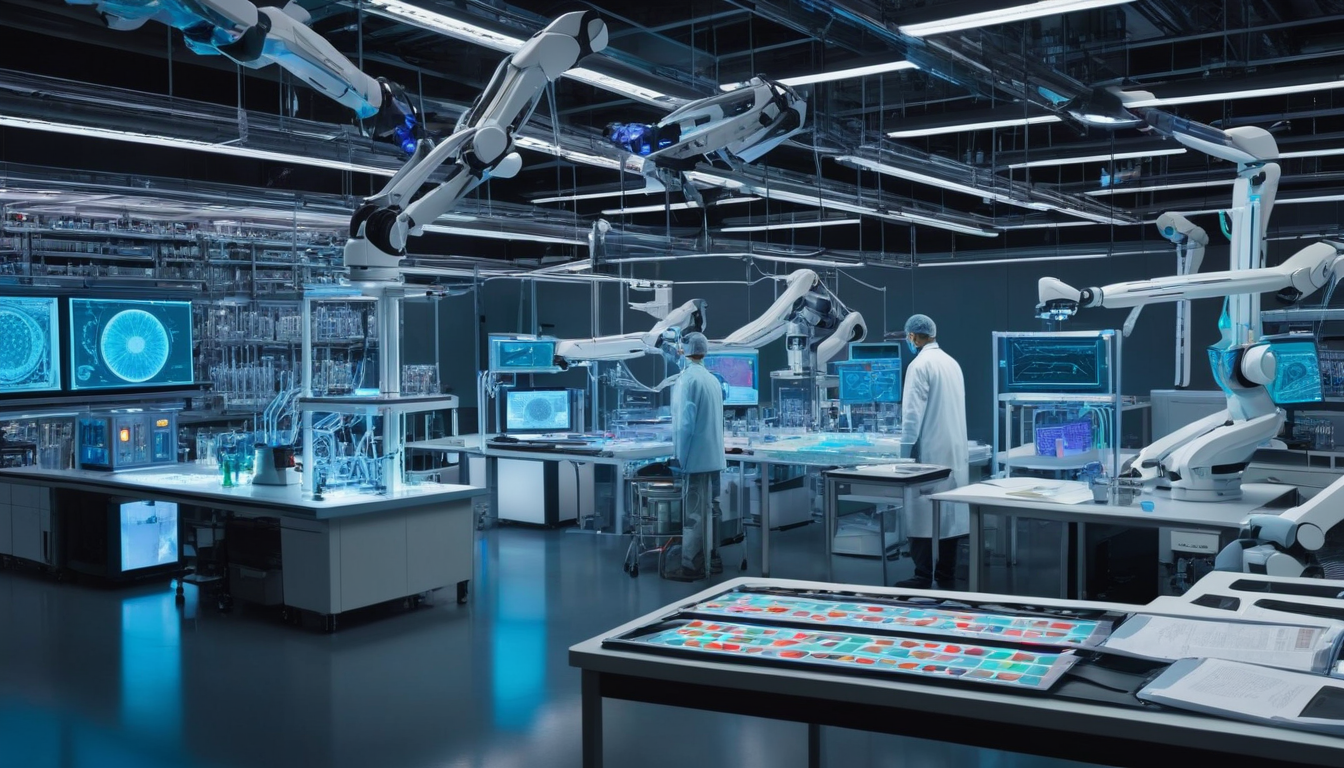
5. Drug Discovery
When it comes to drug discovery, artificial intelligence is nothing short of a game-changer. Imagine a world where the process of finding new medications is not only faster but also more efficient. AI is making this dream a reality by leveraging vast amounts of biological data and using advanced algorithms to predict how different compounds will interact with the body. This technology is revolutionizing the way researchers identify potential drug candidates, which traditionally took years and immense resources.
One of the most significant advantages of AI in drug discovery is its ability to analyze complex data sets quickly. For instance, AI can sift through millions of molecular structures to identify which ones might be effective for treating specific diseases. This process was once a tedious manual task, but with AI, it’s like having a supercharged assistant that never tires. As a result, researchers can focus their efforts on the most promising compounds, significantly reducing the time it takes to bring a new drug to market.
Moreover, AI can also predict drug interactions and side effects before clinical trials even begin. This predictive capability not only saves time but also minimizes the risk of costly failures during the trial phase. To illustrate this, consider the following table that highlights the traditional drug discovery timeline versus the AI-enhanced process:
| Phase | Traditional Drug Discovery | AI-Enhanced Drug Discovery |
|---|---|---|
| Research and Development | 10-15 years | 2-5 years |
| Cost | $2.6 billion | $500 million |
| Success Rate | 1 in 10,000 | 1 in 1,000 |
As you can see, AI is making the drug discovery process not only faster but also more cost-effective and successful. Another exciting aspect of AI in this field is its ability to facilitate collaboration among researchers. By utilizing shared platforms and databases, scientists can access a wealth of information and insights that were previously siloed. This collaborative approach fosters innovation and accelerates the discovery of new therapies.
However, it’s essential to approach this technological advancement with caution. As Dr. Jane Smith, a leading researcher in AI drug discovery, states, “While AI holds immense potential, we must ensure that the data used is accurate and free from bias. The future of medicine depends on our ability to harness this technology responsibly.”
In conclusion, the integration of AI in drug discovery is not just a trend; it’s a transformative force that’s reshaping the pharmaceutical landscape. By enhancing the speed, efficiency, and accuracy of the drug discovery process, AI is paving the way for breakthroughs that could save countless lives.

6. Operational Efficiency
In today’s fast-paced healthcare environment, operational efficiency has become a critical focus for providers aiming to deliver exceptional patient care while minimizing costs. With the integration of AI technologies, healthcare facilities are witnessing a transformative shift in how they manage administrative tasks and streamline operations. Imagine a world where mundane tasks, like scheduling appointments and processing billing, are handled seamlessly by intelligent systems. This is not just a dream; it is a reality that AI is making possible.
AI systems can automate repetitive tasks, which not only saves valuable time but also reduces the likelihood of human error. For instance, instead of manually entering patient data or managing appointment slots, healthcare professionals can rely on AI to handle these tasks efficiently. This allows them to devote more attention to their patients, enhancing the quality of care provided. Moreover, AI can analyze historical data to optimize scheduling, ensuring that healthcare providers can see more patients without compromising care quality.
To illustrate the impact of AI on operational efficiency, consider the following table that summarizes key areas where AI is making a difference:
| Area of Improvement | AI Contribution |
|---|---|
| Appointment Scheduling | Automated reminders and optimized booking processes |
| Billing and Claims Processing | Faster processing and reduced errors through automation |
| Patient Data Management | Enhanced accuracy and security of patient records |
| Resource Allocation | Data-driven insights for better resource management |
Additionally, AI-driven analytics can help healthcare organizations identify inefficiencies in their operations. By analyzing patterns in patient flow and resource utilization, AI can suggest improvements that lead to significant cost savings. For example, if a hospital notices that certain departments are consistently overbooked, AI can recommend adjustments to staffing or scheduling to alleviate bottlenecks.
Furthermore, as we embrace these AI solutions, it’s essential to consider the human aspect of healthcare. While AI enhances operational efficiency, the personal touch provided by healthcare professionals remains irreplaceable. Patients value empathy and understanding, which are qualities that technology cannot replicate. Therefore, the goal should be to use AI as a tool to empower healthcare workers, allowing them to focus on what they do best—caring for patients.
In conclusion, the integration of AI in healthcare operations is not just about reducing costs; it’s about creating a more efficient system that ultimately benefits patients. As we continue to explore the possibilities of AI, it’s clear that operational efficiency will play a pivotal role in shaping the future of healthcare. As the saying goes, “Time is money,” and in healthcare, saving time translates to improved patient outcomes and satisfaction.
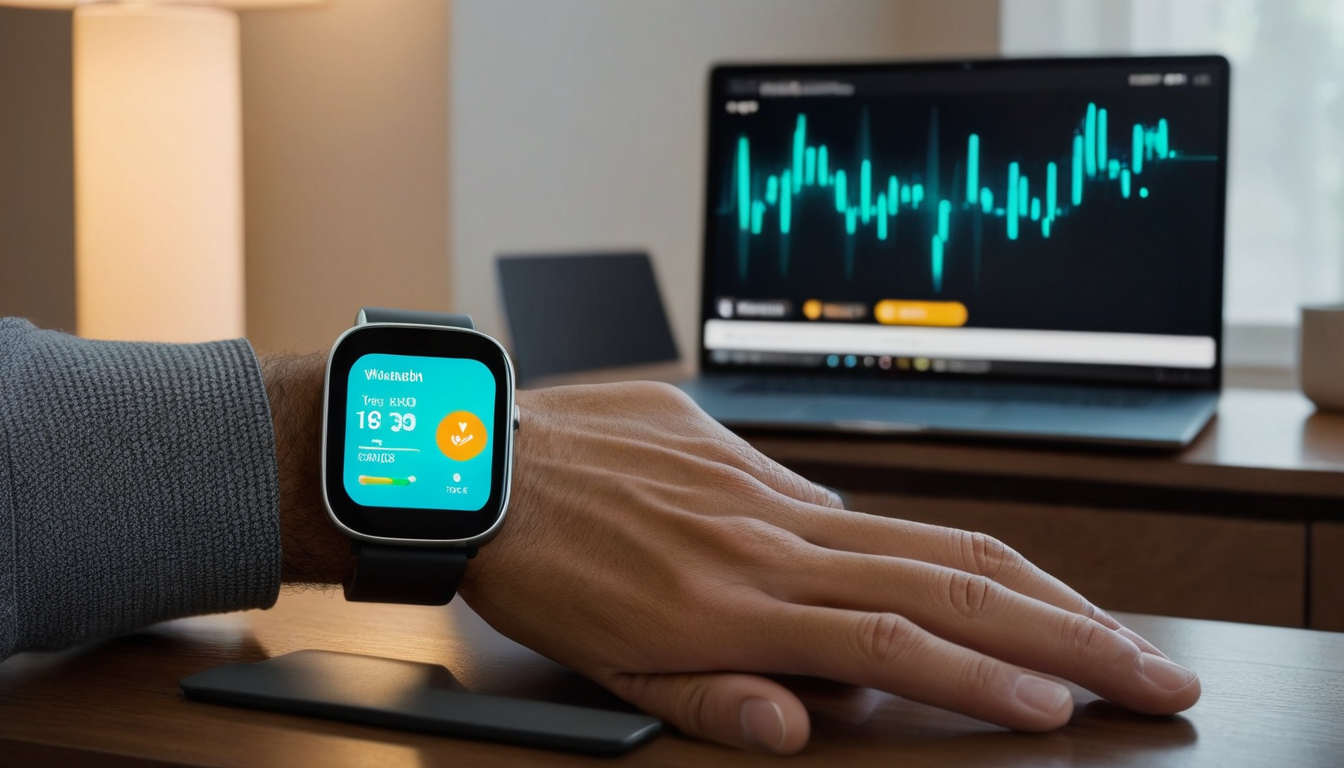
7. Remote Monitoring
In today’s fast-paced world, remote monitoring has emerged as a game-changer in healthcare, particularly for patients managing chronic conditions. Imagine being able to monitor your health from the comfort of your home, without the need for frequent hospital visits. This innovation is not just a luxury; it’s becoming a necessity. Thanks to AI technology, healthcare providers can now track vital signs and health metrics in real-time, which significantly enhances patient care and safety.
Remote monitoring works by utilizing wearable devices that collect data such as heart rate, blood pressure, and glucose levels. This data is then transmitted to healthcare professionals who can analyze it and make informed decisions. The benefits are immense:
- Continuous Health Tracking: Patients can be monitored 24/7, allowing for timely interventions when necessary.
- Increased Patient Engagement: Patients become active participants in their health management, leading to better adherence to treatment plans.
- Cost-Effective Care: Reduces the need for hospital readmissions and emergency visits, saving both time and money.
A recent study showed that remote monitoring can reduce hospital readmissions by up to 30%. This statistic underscores the importance of integrating AI and remote monitoring into patient care strategies. Furthermore, the technology allows for personalized treatment adjustments based on real-time data, which is crucial for conditions like diabetes or heart disease.
To illustrate how remote monitoring is transforming patient care, consider the following table that compares traditional monitoring methods with remote monitoring solutions:
| Aspect | Traditional Monitoring | Remote Monitoring |
|---|---|---|
| Patient Access | In-person visits | 24/7 access via devices |
| Data Collection | Manual and periodic | Automated and continuous |
| Response Time | Delayed | Immediate alerts and actions |
As we embrace the future of healthcare, it’s essential to recognize the role of AI in enhancing remote monitoring. The ability to provide real-time feedback not only empowers patients but also allows healthcare providers to deliver more effective and personalized care. However, it’s crucial to address privacy concerns and ensure that patient data is managed securely. As we venture deeper into this digital age, the balance of innovation and ethics will define the future of healthcare.
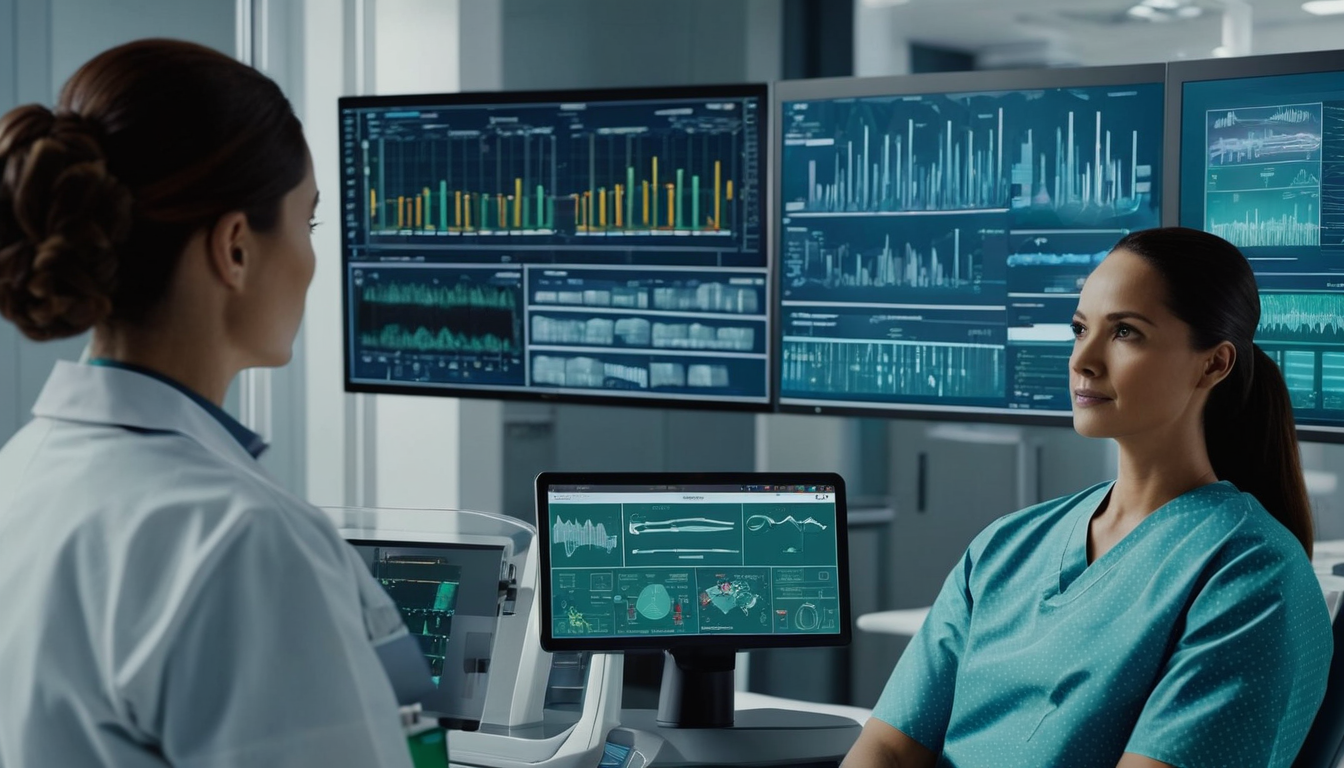
8. Clinical Decision Support
In today’s fast-paced healthcare environment, Clinical Decision Support (CDS) systems are becoming indispensable tools for healthcare professionals. These AI-driven systems analyze patient data and provide evidence-based recommendations, helping clinicians make informed decisions quickly. Imagine having a personal assistant that not only knows the latest medical research but can also sift through mountains of patient data in seconds! That’s the power of AI in CDS.
CDS systems utilize complex algorithms to evaluate various factors, including medical history, symptoms, and current treatments. By integrating these elements, they can suggest personalized treatment options tailored for each patient. This not only enhances the accuracy of diagnoses but also reduces the likelihood of human error, which can be life-saving. For instance, if a patient presents with specific symptoms, the CDS can immediately alert the physician about potential diagnoses and recommend further tests or treatments.
Here’s a quick look at how CDS systems work:
| Step | Description |
|---|---|
| Data Collection | The system gathers patient data from various sources, including electronic health records and lab results. |
| Data Analysis | AI algorithms analyze the collected data to identify patterns and correlations. |
| Recommendation Generation | The system generates actionable recommendations based on the analysis. |
| Decision Support | Clinicians receive the recommendations and can make informed decisions regarding patient care. |
Moreover, the integration of CDS into clinical workflows is seamless, allowing healthcare providers to access vital information without disrupting their routine. This is particularly important in emergency situations where every second counts. However, it’s crucial to remember that while CDS systems are powerful, they are not a replacement for human judgment. Clinicians must still apply their expertise and experience when making final decisions.
As we look to the future, the potential for Clinical Decision Support systems is enormous. They not only promise to enhance patient outcomes but also to empower healthcare professionals with the tools they need to deliver the best care possible. In a world where medical knowledge is constantly evolving, having a reliable partner in the form of AI can make all the difference.
In conclusion, the role of AI in Clinical Decision Support systems is pivotal. As these technologies continue to advance, they will undoubtedly reshape the landscape of healthcare, making it more efficient, effective, and patient-centered.
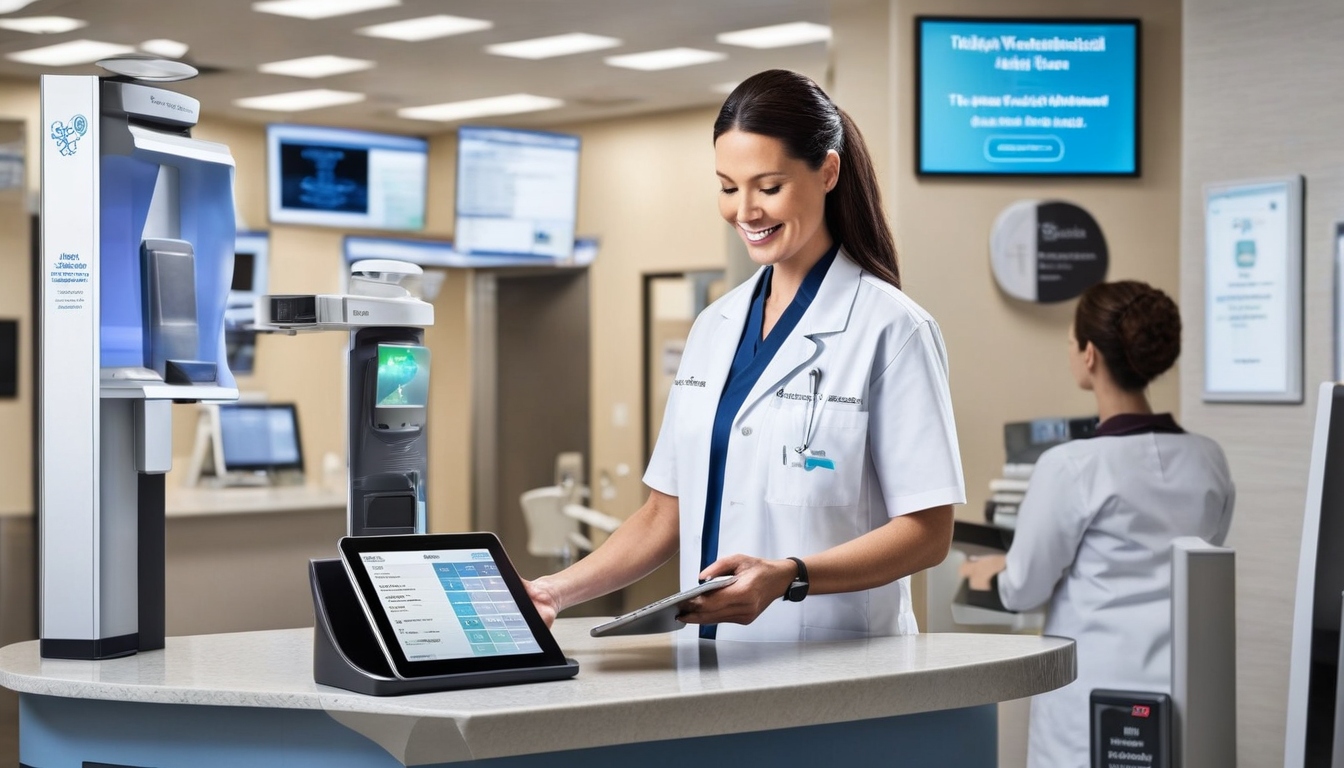
9. Enhanced Patient Experience
In today’s fast-paced world, enhanced patient experience is not just a luxury; it’s a necessity. With the integration of artificial intelligence (AI) in healthcare, patients are witnessing a transformation that makes their healthcare journey smoother and more personalized. Imagine walking into a clinic where your needs are anticipated, and your time is valued. That’s the magic AI brings to the table! By leveraging patient data, AI systems can tailor interactions and streamline processes, leading to a more satisfying experience overall.
One of the key ways AI enhances patient experience is through personalized interactions. When patients feel like they are more than just a number, it fosters trust and satisfaction. For instance, AI can analyze previous interactions and preferences, allowing healthcare providers to offer customized care plans and follow-ups. This personal touch can significantly improve patient engagement and adherence to treatment protocols.
Additionally, AI helps reduce wait times, a common pain point for many patients. With intelligent scheduling systems, clinics can optimize appointment slots based on patient needs and historical data. This not only minimizes the time spent in waiting rooms but also maximizes the efficiency of healthcare providers. Just think about it—less time waiting means more time for what really matters: your health!
Moreover, AI-powered tools provide timely follow-ups through automated systems. For example, after a visit, patients can receive reminders for medications or upcoming appointments via text or email. This proactive approach ensures that patients stay on track with their health goals, leading to better outcomes. Here’s a quick overview of how AI enhances patient experience:
| AI Applications | Benefits |
|---|---|
| Personalized Interactions | Builds trust and improves engagement |
| Optimized Scheduling | Reduces wait times and increases efficiency |
| Automated Follow-ups | Keeps patients on track with their health |
In conclusion, the integration of AI in healthcare is paving the way for an enhanced patient experience that prioritizes individual needs and streamlines processes. As we continue to embrace these technological advancements, patients can look forward to a future where their healthcare journey is not only efficient but also deeply personalized. This shift is not just about technology; it’s about creating a healthcare environment where patients feel valued and cared for.
“AI in healthcare is not just about efficiency; it’s about enhancing the human experience.”
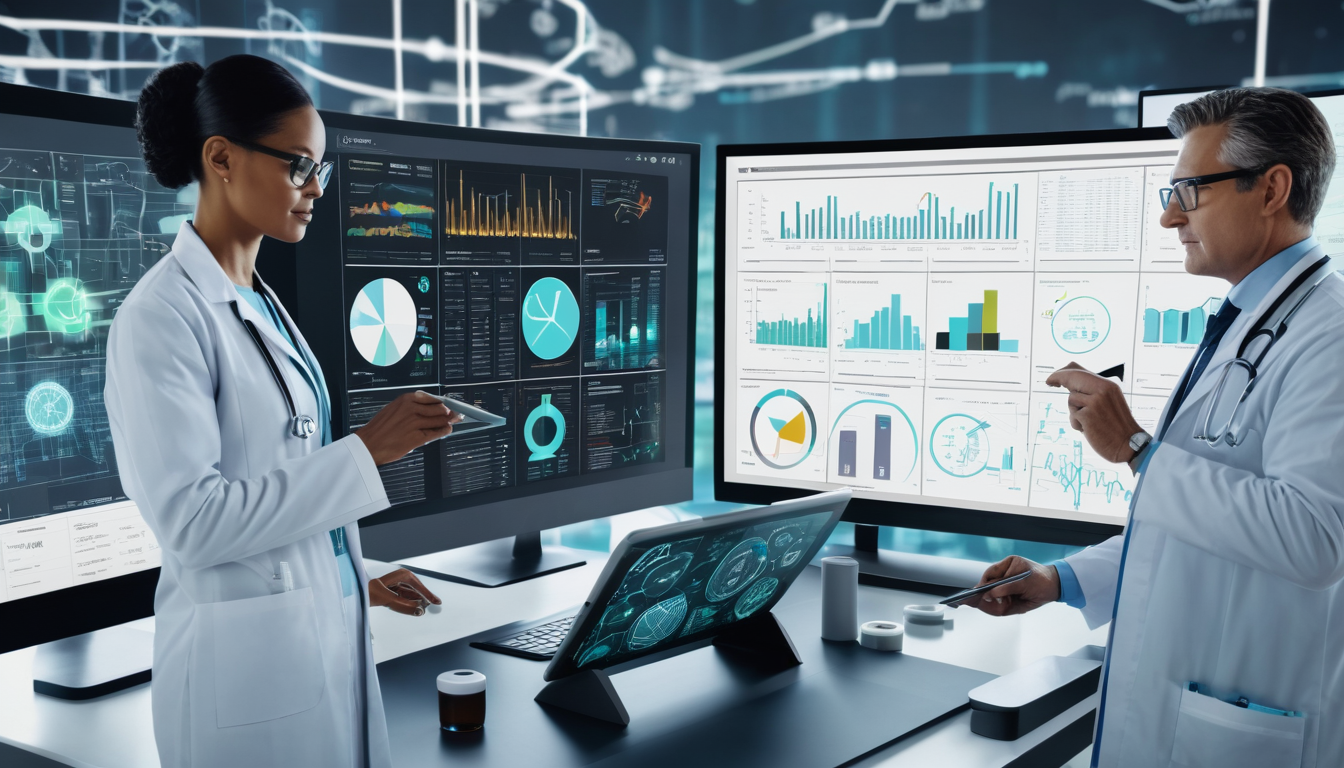
10. Health Data Management
In today’s digital age, health data management has become a cornerstone of effective healthcare delivery. With the explosion of patient data generated from various sources—like electronic health records (EHRs), wearable devices, and even social media—healthcare providers are faced with the daunting task of managing this information efficiently. Imagine trying to find a needle in a haystack; that’s how overwhelming it can be to sift through vast amounts of health data without the right tools.
AI technologies play a pivotal role in transforming how healthcare organizations handle this data. By automating data entry and analysis, AI reduces human error and enhances the accuracy of patient records. For instance, machine learning algorithms can identify patterns and trends in patient data that might be invisible to the human eye. This leads to better-informed decision-making and improved patient outcomes.
One of the most significant advantages of AI in health data management is its ability to ensure data security and compliance with regulations like HIPAA. With sensitive patient information at stake, safeguarding data is crucial. AI systems can monitor access and detect unusual activity, acting as a digital watchdog that enhances security protocols.
Moreover, AI facilitates streamlined access to health data for healthcare professionals. No one wants to waste precious time searching for vital information when a patient’s health is on the line. With AI-driven tools, clinicians can quickly retrieve patient histories, lab results, and treatment plans, allowing them to focus more on patient care rather than paperwork.
| AI Benefits in Health Data Management | Description |
|---|---|
| Enhanced Data Security | AI systems monitor and protect sensitive patient information. |
| Improved Accuracy | Machine learning reduces human error in data entry and analysis. |
| Quick Access | Healthcare professionals can retrieve information rapidly, improving patient care. |
| Predictive Analytics | AI identifies trends and potential health risks based on patient data. |
In summary, the integration of AI into health data management not only streamlines processes but also enhances patient care. As we continue to embrace these technologies, the healthcare industry is bound to see a significant shift in how data is utilized, leading to better health outcomes and a more efficient healthcare system overall. As someone once said, “Data is the new oil,” and in healthcare, it’s the lifeblood that keeps the system running smoothly.
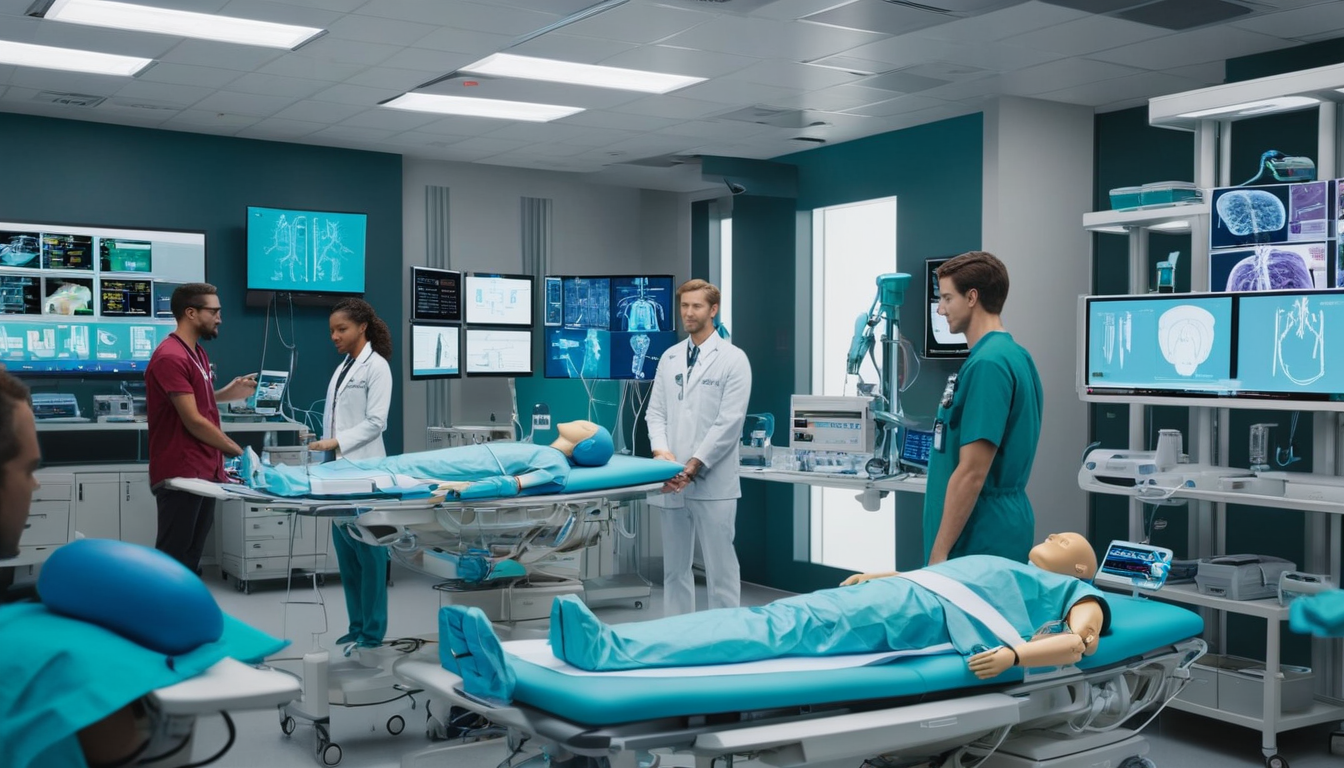
11. Training and Education
Artificial Intelligence (AI) is making waves in the realm of training and education within the healthcare sector. Imagine a world where medical students can practice complex surgeries in a virtual environment before stepping into the operating room. This is not just a dream—it’s happening now! AI technologies are being harnessed to create realistic simulations that provide invaluable hands-on experience without the risk of harming real patients.
One of the standout features of AI in healthcare training is its ability to offer personalized learning experiences. With AI-driven platforms, medical professionals can receive tailored educational content based on their individual strengths and weaknesses. This ensures that every learner can progress at their own pace, making the educational process more efficient and effective.
Moreover, AI can analyze vast amounts of data to identify trends in medical practices and patient outcomes, which can then be integrated into training programs. For instance, a recent study highlighted that AI-enhanced training modules improved the retention of critical skills by over 30%. This is a significant leap forward in ensuring that future healthcare providers are well-equipped to handle real-world challenges.
Here’s a quick look at how AI is transforming healthcare training:
| AI Application | Benefits |
|---|---|
| Simulation Training | Provides risk-free practice environments for complex procedures. |
| Adaptive Learning | Offers personalized content to enhance learning efficiency. |
| Data Analysis | Integrates real-world data to inform training practices. |
In addition to these advancements, AI is also being used in continuing education for healthcare professionals. With the rapid pace of medical innovation, staying updated is crucial. AI systems can curate relevant courses and materials that align with a professional’s career path and interests. This not only promotes lifelong learning but also ensures that healthcare providers are always at the forefront of medical advancements.
However, with these exciting developments come challenges. Ethical considerations surrounding AI in training—such as data privacy and the potential for bias—must be addressed. As we embrace AI in healthcare education, it’s essential to maintain a balance between technological advancement and ethical responsibility.
In conclusion, the integration of AI into training and education in healthcare is not just a trend; it’s a revolution. As we continue to explore the potential of AI, the future of medical training looks brighter than ever. Let’s embrace these innovations and prepare for a healthcare environment that is not only more efficient but also more effective in delivering patient care.
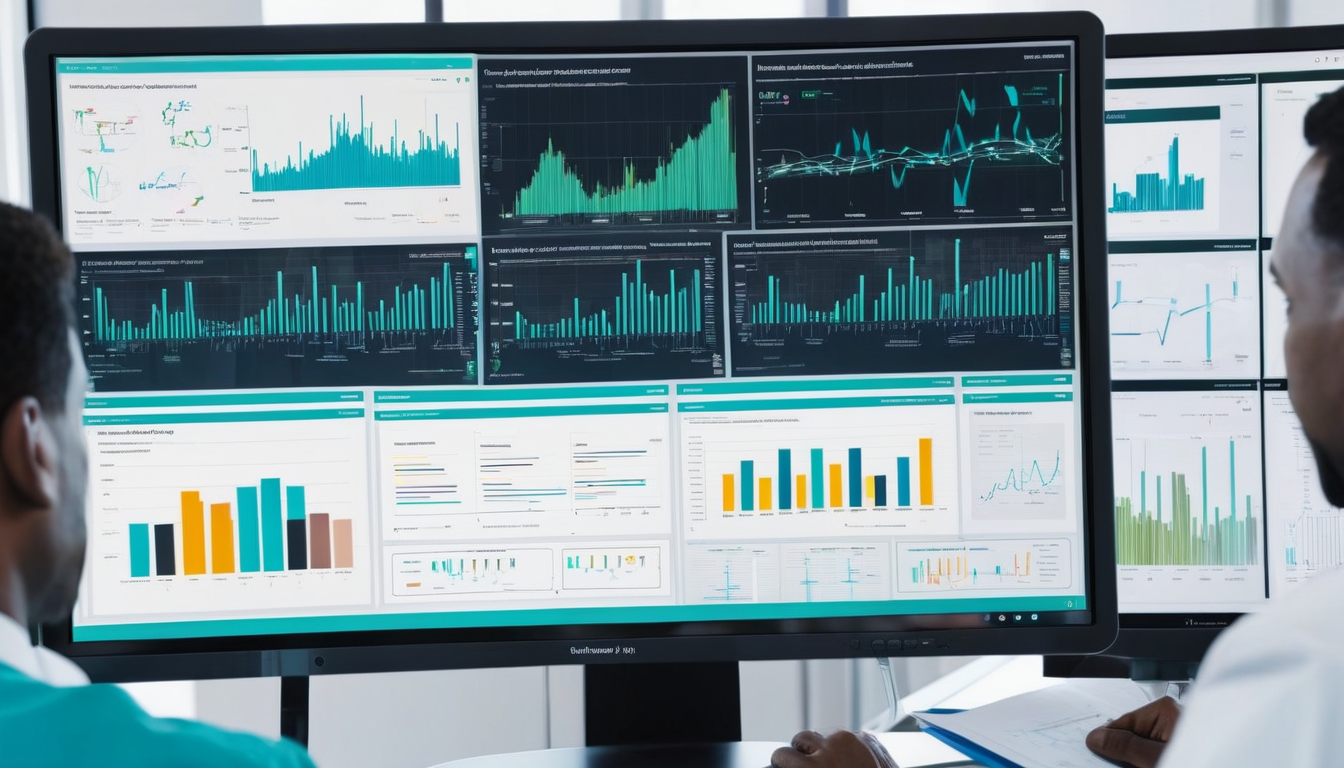
12. Ethical Considerations
As artificial intelligence (AI) continues to make waves in the healthcare industry, ethical considerations are becoming increasingly crucial. The integration of AI into healthcare raises important questions regarding data privacy, bias, and accountability. With sensitive patient information being processed and analyzed, ensuring the security and confidentiality of this data is paramount. For instance, how do we protect patient data from breaches while still leveraging AI’s capabilities to enhance care?
Moreover, the risk of algorithmic bias cannot be overlooked. If the data fed into AI systems is not representative of diverse populations, it can lead to skewed results and potentially harmful outcomes for underrepresented groups. This raises the question: how can we ensure that AI systems are fair and equitable? To address these concerns, healthcare providers and technology developers must work together to implement rigorous testing and validation processes.
Accountability is another significant ethical concern. If an AI system makes a mistake—such as misdiagnosing a patient—who is held responsible? Is it the developer, the healthcare provider, or the institution? These questions necessitate clear guidelines and regulations to delineate responsibility in the event of errors.
| Ethical Consideration | Description | Potential Solutions |
|---|---|---|
| Data Privacy | Protection of sensitive patient information from unauthorized access. | Implementing robust cybersecurity measures and data encryption. |
| Algorithmic Bias | Ensuring AI systems do not favor one demographic over another. | Diverse data sets, regular audits, and inclusive testing. |
| Accountability | Defining who is responsible for AI-driven decisions. | Establishing clear regulatory frameworks and guidelines. |
In addition to these concerns, the healthcare industry must also consider the ethical implications of AI in decision-making. While AI can assist in diagnosing and recommending treatments, it is essential to maintain a human touch in patient care. Patients often seek empathy and understanding from their healthcare providers, something that AI cannot replicate. Thus, striking a balance between technology and human interaction is vital.
As we navigate the complexities of integrating AI into healthcare, ongoing dialogue among stakeholders—including ethicists, healthcare professionals, and patients—is essential. This collaboration will help ensure that the benefits of AI are realized while minimizing risks and addressing ethical dilemmas. In the end, the goal is to enhance patient care without compromising moral and ethical standards.
In conclusion, while AI holds tremendous potential for transforming healthcare, it is imperative to approach its implementation with caution. By prioritizing ethical considerations, we can harness the power of AI in a way that fosters trust, equity, and accountability in patient care.
“The future of healthcare is not just about technology; it’s about how we use that technology ethically to improve lives.”
Frequently Asked Questions
- How is AI enhancing diagnostics in healthcare?
AI is revolutionizing diagnostics by utilizing algorithms that analyze medical images and patient data. This leads to earlier detection of diseases, allowing for better treatment plans tailored to individual needs.
- What is personalized medicine and how does AI contribute to it?
Personalized medicine involves customizing treatment plans based on a patient’s unique data, including genetics and lifestyle. AI plays a crucial role by analyzing this data to create more effective and targeted therapies.
- Can AI really predict patient outcomes?
Yes! AI analyzes vast amounts of data to predict patient outcomes and potential health risks. This proactive approach allows healthcare providers to intervene early, improving overall patient care.
- What are virtual health assistants?
Virtual health assistants are AI-powered chatbots that help patients with instant access to information, appointment scheduling, and medication reminders, ultimately enhancing patient engagement and satisfaction.
- How does AI speed up the drug discovery process?
AI accelerates drug discovery by analyzing biological data to predict drug interactions and identify potential candidates for clinical trials. This significantly reduces the time and costs associated with bringing new drugs to market.
- In what ways does AI improve operational efficiency in healthcare?
AI streamlines administrative tasks like billing and scheduling, allowing healthcare professionals to focus more on patient care while also reducing operational costs for healthcare facilities.
- What is remote patient monitoring?
Remote patient monitoring uses AI technology and wearable devices to continuously track a patient’s health, enabling timely interventions for chronic conditions and improving overall health management.
- How does AI assist in clinical decision-making?
AI systems provide clinical decision support by analyzing patient data and suggesting evidence-based treatment options, helping healthcare providers make informed decisions.
- How does AI enhance the patient experience?
AI improves the patient experience by personalizing interactions, reducing wait times, and providing timely follow-ups through automated systems, ensuring patients feel valued and cared for.
- What role does AI play in health data management?
AI aids in managing and analyzing large volumes of health data, ensuring better data security, compliance, and streamlined access for healthcare professionals, which ultimately benefits patient care.
- Are there ethical concerns regarding AI in healthcare?
Yes, as AI evolves in healthcare, ethical considerations such as data privacy, bias, and accountability become increasingly important, necessitating careful oversight and regulation to protect patients.













